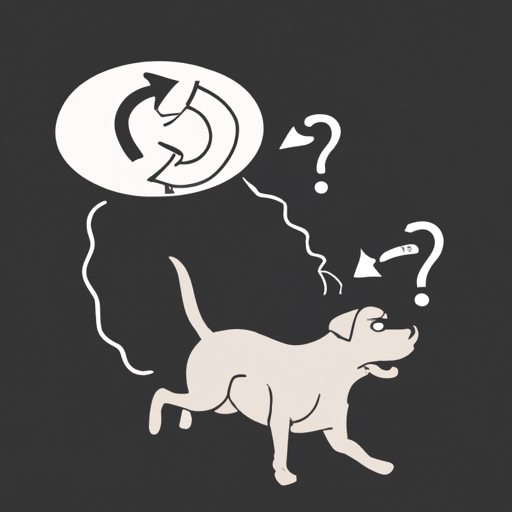“`markdown
Why Do Dogs Chase Their Own Tails?
Understanding Canine Behavior
The first thing you need to know is that canine behavior can be complex and multifaceted. Dogs chase their tails for a variety of reasons, and it’s not as straightforward as you might think. It’s important to observe your dog’s behavior, look at the context and frequency of the tail-chasing, and understand that it may indicate different things at different times.
- Playfulness: Dogs are playful creatures by nature, and tail-chasing can often be a simple expression of playfulness. This is particularly common in puppies, who are still learning about their bodies and exploring their environment.
- Boredom: If your dog doesn’t have enough physical or mental stimulation, they may resort to tail-chasing as a way to entertain themselves.
- Anxiety or Stress: Tail-chasing can be a sign of anxiety or stress in dogs. It’s a form of obsessive-compulsive behavior that they resort to when they’re feeling anxious or stressed.
Physical Health Issues
Sometimes, tail-chasing can be a sign of physical health issues. Here are a few possibilities:
- Fleas or Parasites: If your dog has fleas or parasites, they may chase their tail because it itches or irritates them.
- Anal Glands: Dogs have anal glands that can sometimes become impacted or infected. This can cause discomfort and lead to tail-chasing.
- Neurological Issues: In rare cases, tail-chasing can be a symptom of a neurological disorder. This is usually accompanied by other symptoms, such as changes in behavior, loss of coordination, or seizures.
| Possible Causes | Symptoms | Solutions |
|---|---|---|
| Fleas or Parasites | Scratching, Biting, Redness | Use flea and tick treatment |
| Anal Glands | Scooting, Licking rear end, Difficulty sitting | See your vet |
| Neurological Issues | Changes in behavior, Loss of coordination, Seizures | See your vet |
Behavioral Problems and Solutions
If your dog’s tail-chasing is becoming a problem, there are some things you can do to help.
- Provide more physical and mental stimulation. Long walks, interactive toys, and training sessions can help keep your dog entertained and engaged.
- If you think your dog’s tail-chasing is a result of anxiety or stress, it might be worth consulting with a professional dog behaviorist or trainer. They can help you identify the source of the stress and provide strategies to help manage it.
- Regular vet check-ups can help ensure that your dog is in good health and that any potential physical causes for tail-chasing are identified and treated promptly.
When to Seek Professional Help
If your dog’s tail-chasing becomes excessive or obsessive, it’s important to seek professional help. A vet can help rule out any physical causes, while a dog behaviorist can provide guidance and strategies for managing behavioral issues.
FAQ
Q: Why does my puppy chase its tail?
A: Puppies often chase their tails as a form of play and exploration. It’s usually nothing to worry about unless it becomes excessive or obsessive.
Q: Can tail-chasing be a sign of a more serious issue?
A: Yes, in some cases, tail-chasing can be a sign of a physical health issue or a behavioral problem. If you’re concerned about your dog’s tail-chasing, it’s best to consult with a vet or a professional dog behaviorist.
Q: What can I do to stop my dog from chasing its tail?
A: Providing more physical and mental stimulation, addressing any potential physical health issues, and consulting with a professional if the behavior becomes problematic can help manage tail-chasing in dogs.
“`



